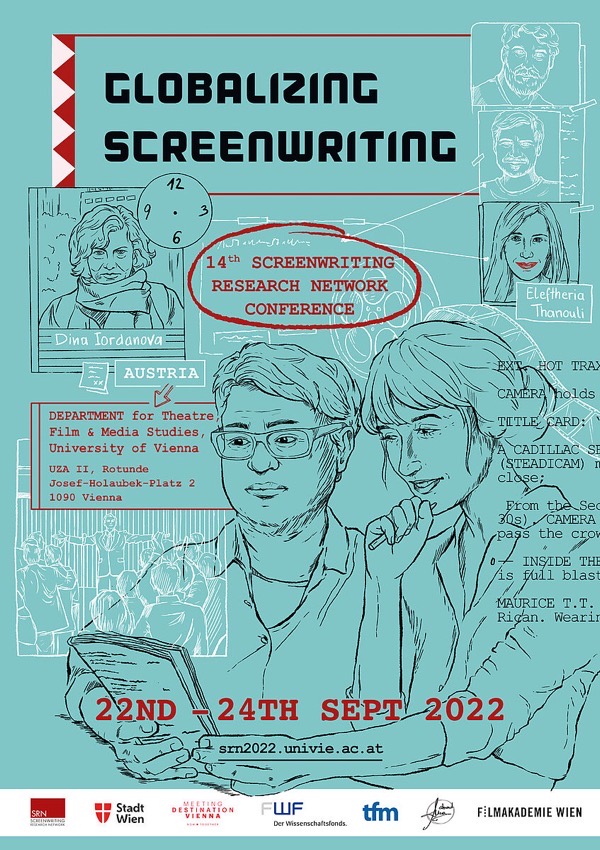Transcript:
Americans start paying attention because of things like “Rome Open City” which is not something Suso wrote on but is of course a film that was very majorly important here and we start thinking oh how can we incorporate that into our movies and so it begins with things like “On the Waterfront” which most people have seen or heard about which is really working through the HUAC hearings and who’s a stool pigeon and who’s not and who gives names. So we start to see the influences come into American films. “Marty” is considered one of the best examples of that and I do think this is a beautiful film because we’re looking at people who aren’t beautiful. People who aren’t rich. People who aren’t who we think movie stars should be and I often tell my students — it’s hilarious — Ernest Borgnine. They know him from being the Mermaid Man in SpongeBob. The man’s career went 80 years and here he is, they watch “Marty” in there. Amazed that what a brilliant actor. He is playing an Italian-American butcher. So a very unromantic job on top of all that. So we’re seeing some of the Italian neo-realism come into American films.
Watch this entire presentation
At the recent Screenwriting Research Network conference in Vienna, I gave this talk titled “From Jeanne to Suso to Julie to Spike: How Jeanne Macpherson’s Manual on Screenwriting Influenced Italian Realism which Influenced Black Independent Film in the U.S.”
In the talk, I trace the ways a manual about screenwriting by silent film writer Jeanne Macpherson influenced Suso Cecchi d’Amici who began to utilize Macpherson’s ideas and became the queen of Italian neorealism screenwriting in Europe. Then those Italian neo-realist screenwriters in turn inspired the Los Angeles School of Black Independent Film Makers (the L.A. School). In turn, such as Charles Burnett, Billy Woodberry, Haile Gerima, and Julie Dash and their ideas fueled Spike Lee. Finally, when he became the first Black man to head the jury at the Cannes Film Festival (where Suso had once served) his choice of films influenced yet another generation of screenwriters.
Podcast: Play in new window | Download
Subscribe: RSS
![06 Neo-realism in the US From Jeanne to Suso to Julie to Spike: How Jeanne Macpherson’s Manual on Screenwriting Influenced Italian Realism which Influenced Black Independent Film in the U.S. [Video]](https://rosannewelch.com/wp-content/uploads/2022/11/rmw-srn-vienna-2022-06.jpg)


![05 Even More On Suso Cecchi d'Amico From Jeanne to Suso to Julie to Spike: How Jeanne Macpherson’s Manual on Screenwriting Influenced Italian Realism which Influenced Black Independent Film in the U.S. [Video]](https://rosannewelch.com/wp-content/uploads/2022/11/rmw-srn-vienna-2022-05.jpg)
![04 More On Suso Cecchi d'Amico From Jeanne to Suso to Julie to Spike: How Jeanne Macpherson’s Manual on Screenwriting Influenced Italian Realism which Influenced Black Independent Film in the U.S. [Video]](https://rosannewelch.com/wp-content/uploads/2022/11/rmw-srn-vienna-2022-04.jpg)
![03 Jeanne Macpherson & Suso Cecchi d'Amico From Jeanne to Suso to Julie to Spike: How Jeanne Macpherson’s Manual on Screenwriting Influenced Italian Realism which Influenced Black Independent Film in the U.S. [Video]](https://rosannewelch.com/wp-content/uploads/2022/10/rmw-srn-vienna-2022-03.jpg)
![02 Who was JeanneMacpherson? From Jeanne to Suso to Julie to Spike: How Jeanne Macpherson’s Manual on Screenwriting Influenced Italian Realism which Influenced Black Independent Film in the U.S. [Video]](https://rosannewelch.com/wp-content/uploads/2022/10/rmw-srn-vienna-2022-02.jpg)
![01 Introduction From Jeanne to Suso to Julie to Spike: How Jeanne Macpherson’s Manual on Screenwriting Influenced Italian Realism which Influenced Black Independent Film in the U.S. [Video]](https://rosannewelch.com/wp-content/uploads/2022/10/SRN-Vienna-001-1.jpg)

![Dr. Rosanne Welch speaks during Screenwriting Research Network Roundtable in Vienna via Instagram [Photography]](http://welchwrite.com/blog/wp-content/uploads/2022/10/308939891_866118424343697_5160052849811620089_n.jpg)
![28 Changes from In Conversation with Dr. Rosanne Welch [Video]](https://rosannewelch.com/wp-content/uploads/2022/09/rmw-intellect-28.jpg)


![17 Even More On My Screenwriting Story from In Conversation with Dr. Rosanne Welch [Video]](https://rosannewelch.com/wp-content/uploads/2022/09/rmw-intellect-27.jpg)